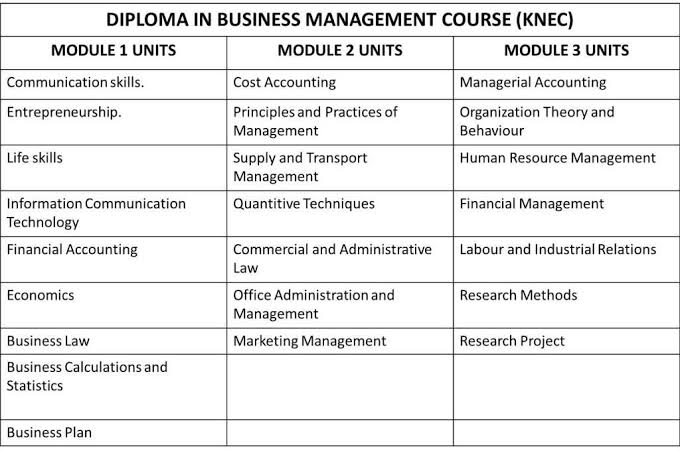
DIPLOMA IN BUSINESS MANAGEMENT
Business Management is an insightful and comprehensive guide that covers the essential principles of managing a successful business. It provides practical strategies, real-world examples, and expert advice on leadership, decision-making, and organizational growth. Whether you're an aspiring entrepreneur or an experienced manager, this book offers valuable knowledge to enhance your skills and drive business success.
REQUIREMENTS AND QUALIFICATIONS
To enroll in a Diploma in Business Management course at a Technical and Vocational Education and Training (TVET) institution in Kenya, the Kenya National Examinations Council (KNEC) has established the following minimum entry requirements:
Kenya Certificate of Secondary Education (KCSE): A mean grade of C- (minus).
Alternative Qualifications:
A relevant Craft Certificate from a recognized institution.
Equivalent qualifications as determined by KNEC.
These requirements are designed to ensure that students possess the foundational knowledge and skills necessary for the diploma program. It's important to note that specific institutions may have additional criteria or variations in their admission process. Therefore, it's advisable to consult the particular TVET institution you're interested in for detailed admission information.
For comprehensive guidelines on business and technical courses, you can refer to the KNEC
guidelines.




